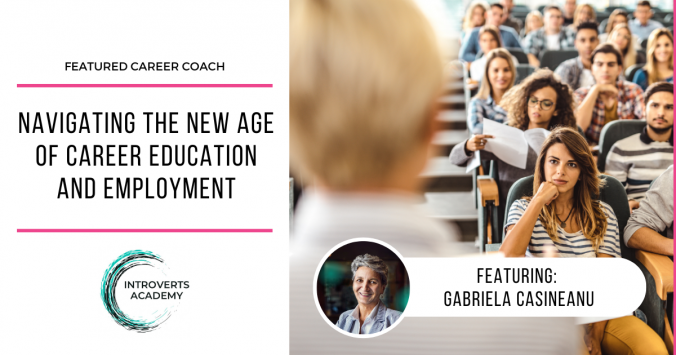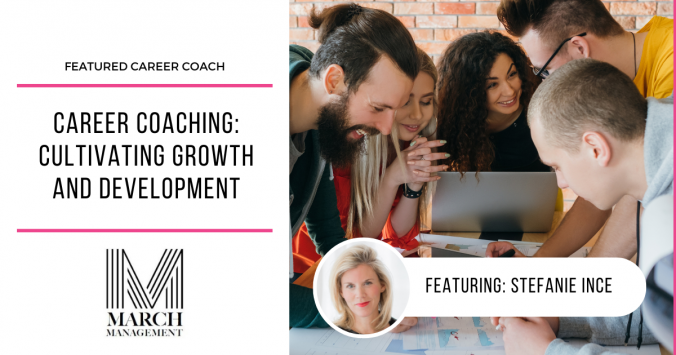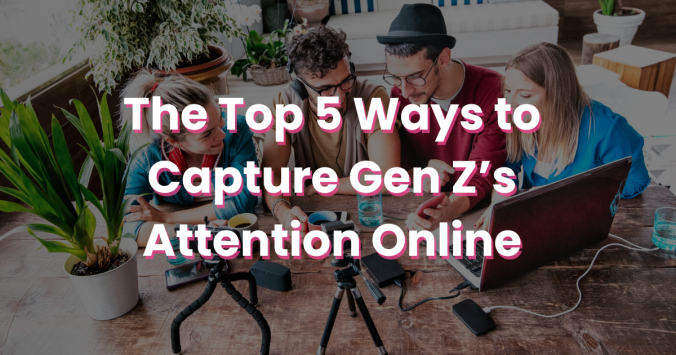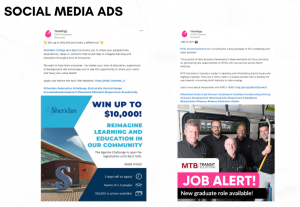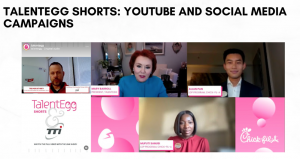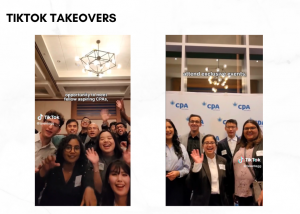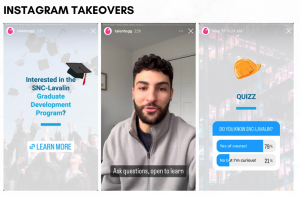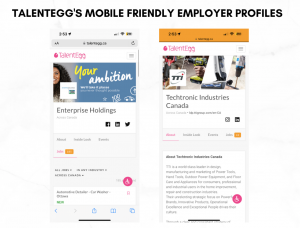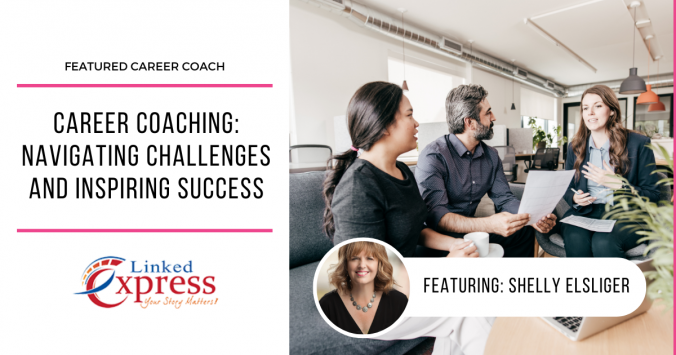TalentEgg’s exclusive interview with Gabriela Casineanu, MBTI® Certified Career & Systems Coach, Founder/Principal of Introverts Academy
In today’s fast-paced world marked by rapidly evolving workplace dynamics, technological advancements, and the aftermath of a global pandemic, career coaching has become crucial in guiding students and new graduates toward success. We recently had the opportunity to speak with Gabriela Casineanu, the founder of Introverts Academy and an experienced career coach with 17 years of practice. In this enlightening interview, Gabriela discusses her insights on career education, Diversity, Equity, and Inclusion (DEI), mental health, and strategies for transitioning from school to the workforce in the digital age.
Gabriela’s Career Coaching Journey
Gabriela began her journey into the world of career coaching in 2006. “Three years after immigrating to Canada, I changed my career [from engineering to professional coaching]. Although I had 18 years in the technical field, I always felt something was missing,” she said. Her passion for coaching, her personality, and the rewarding career aspects motivated her to pursue career coaching. Gabriela recognized a gap in employment and career services and sought to introduce a coaching approach that considers everyone’s individual personality types and strengths.
Gabriela’s most outstanding achievement is the development and successful testing of strategies tailored to introverted students, which culminated in her award-winning book, “Introverts: Leverage Your Strengths for an Effective Job Search.” This work led her to teach at the university level and speak at national career development conferences, emphasizing the importance of personality types and traits in career counselling.
Gabriela’s inspiring vision for the future of career coaching aims to encourage over a million individuals to prioritize self-discovery, align their professional paths with their true selves, and embrace flexibility and adaptability in their careers.
Seamless Integration of DEI in the Workplace
Gabriela is a strong advocate for a transformative approach in the DEI space. She believes organizations should go beyond viewing DEI as a mere compliance requirement and instead integrate it into their culture and work environment at all levels. With her interactive and experiential job-related workshops, along with individual and group coaching sessions, Gabriela has helped students and teams learn new concepts and strategies, empowering them to improve interpersonal communication and foster an inclusive atmosphere.
A Holistic Approach to Well-being in the Workplace
Gabriela believes in a holistic approach to well-being that goes beyond mental health. “In my work with students, I help them understand that they have a two-fold responsibility: to themselves and the organization they’re part of (equally important for mental health). And I encourage them to speak up when they notice something about the work environment, how it affects them, or when they don’t feel well,” Gabriela tells us. Gabriela recognizes the profound connection between the mind, body, and spirit, and she emphasizes the importance of a healthy work environment that considers employees’ needs, strengths, and ideas. A healthy work environment promotes mental well-being and increases productivity and team performance.
Supporting and Attracting Students and New Grads
Employers can proactively support students and recent graduates in the digital age. Gabriela suggests that companies should communicate their willingness to hire candidates with less experience, emphasize the importance of soft and transferable skills, and consider personality and potential during the hiring process. Building connections with educational institutions and fostering alumni relationships can attract top talent.
According to Gabriela’s experience, employers can attract top students by aligning their organizational culture with the values of the current generation. Highlighting successful hires and their stories and promoting them can also help attract talent. Offering incentives for employee referrals and actively participating in career fairs can further enhance an organization’s appeal.
Advice for Career Educators
Gabriela’s advice for new career educators is to be patient and understand that expertise grows with experience. In the post-pandemic era, she urges tenured career educators to embrace technology fully, stay up-to-date on digital trends, and adapt their teaching approaches based on the personality types of their students.
Gabriela reminds us that amidst the endless stream of information, individuals and organizations have inner compasses – intuition and mission, respectively. These guiding lights can help navigate the ever-evolving landscape of education and employment. Success in the modern career coaching age becomes achievable and deeply fulfilling when individuals and organizations cultivate an organizational culture and a workplace environment that empowers employees to contribute their best towards the company’s mission, all while pursuing their own career goals.
